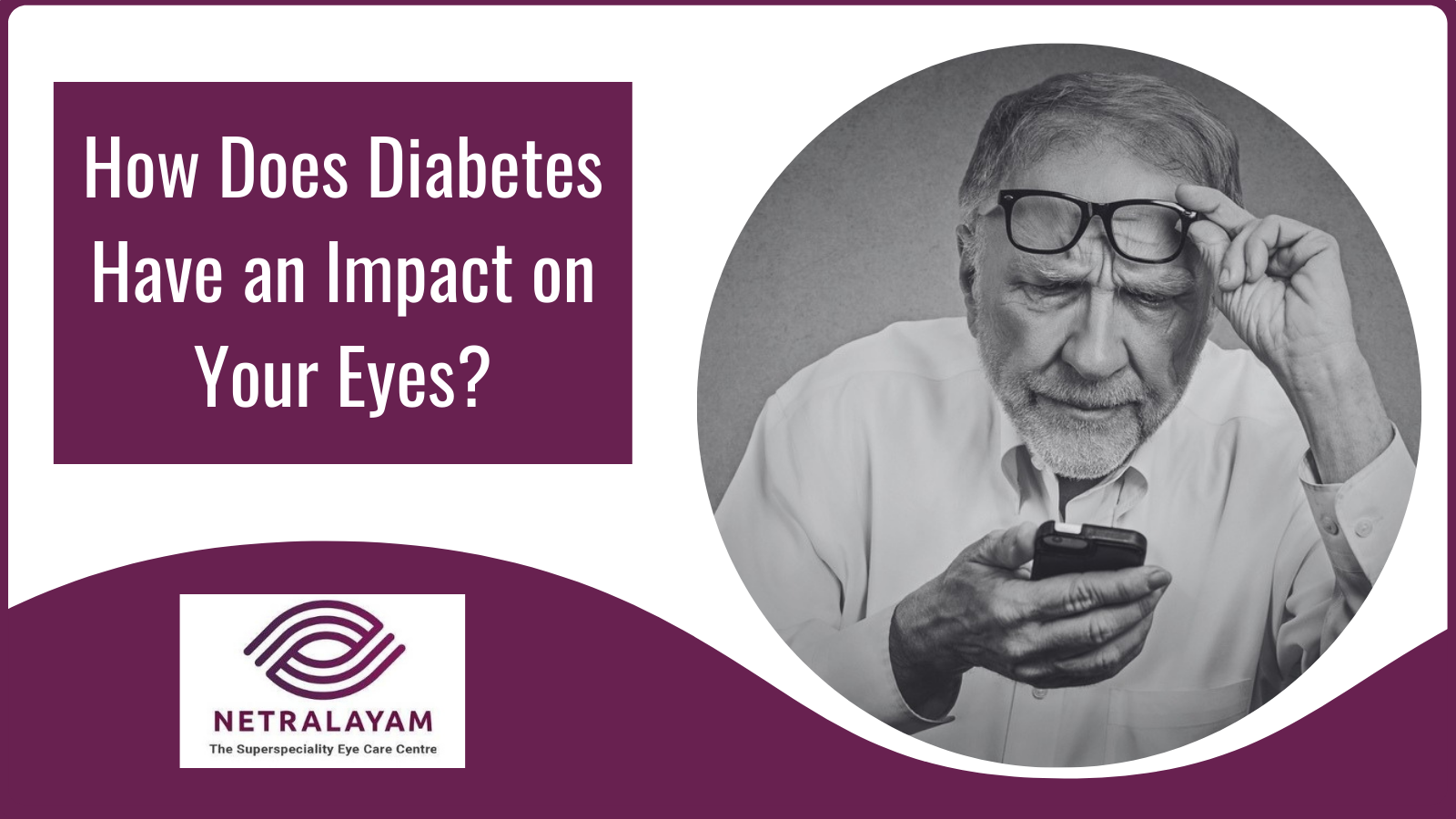Committed to Eye Care with Compassion, Technology and Competency
Committed to Eye Care with Compassion, Technology and Competency

4/17/2022
Blurry vision can make it difficult for you to see finer details. Objects around you can lack sharpness, like the out-of-focus parts of a photograph. One of the main causes of blurry vision can be diabetes. Vision blurriness can change through the day and could be obvious or subtle. Depending on the cause, it can come quickly or slowly.
Also, the complications can be both long-term and short-term and can adversely affect the eyes and eyesight of a person with diabetes. This article discusses the effects of diabetes on your eyes.
High blood sugar caused due to diabetes can have the following short-term as well as long-term effects on your eyes:
The four most serious diabetic eye diseases include:
The swelling of the macula due to diabetes is known as diabetic macular edema. This disease can destroy the sharp vision over time and lead to partial vision loss or total blindness. This diabetic eye disease generally develops in people who may already be suffering from other signs of diabetic retinopathy.
See Also: How does diabetic macular edema affect your vision
Diabetic retinopathy develops when damaged blood vessels harm the retina. The blood vessels can bulge, weaken, and leak into the retina in early diabetic retinopathy. This is known as non-proliferative diabetic retinopathy. If the disease worsens, the blood vessels close off, which can cause new blood vessels to grow on the retina surface. This is called proliferative diabetic retinopathy.
It is a group of eye diseases that can damage the optic nerve. Diabetes can increase the chances of developing glaucoma, which can cause blindness and loss of vision if not treated early.
Unlike people without diabetes, cataracts can develop earlier in people with diabetes. According to research, high glucose levels cause deposits to build up in the eye lenses.
The symptoms that occur can include:
The best way to prevent diabetic eye diseases is to manage your diabetes ABCs:
You should also have a dilated eye exam once a year and quit smoking if you smoke. If you work to manage your diabetes and other health conditions at the earliest, it will be easier to take better care of yourself. It’s never too late to start. However, if you do suffer from any of the diabetic eye diseases symptoms, consult an eye care doctor immediately.
Any diabetic person can develop diabetic eye disease. The risk can increase with:
Furthermore, some groups are more affected by diabetic eye complications than others. For instance, older people are at greater risk of going blind or losing vision due to diabetes. The longer you have diabetes, the higher your chances of developing diabetic eye diseases.
Aside from diabetes, glaucoma, and cataracts, several other factors can cause blurry vision. You should visit an eye specialist if you suffer from any eye or vision symptoms.
Are you looking for the “best eye hospital near you” or “nearest eye hospital”? Netralayam is a super specialty eye care hospital in Kolkata that aims to provide the highest quality services to all sections of society. To schedule an appointment, contact our medical team now.
Comments are closed
